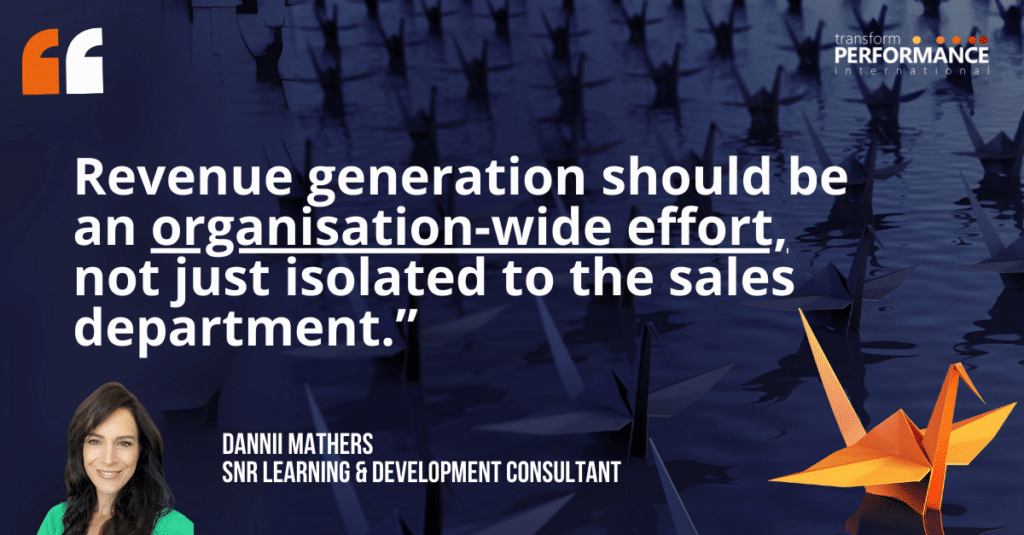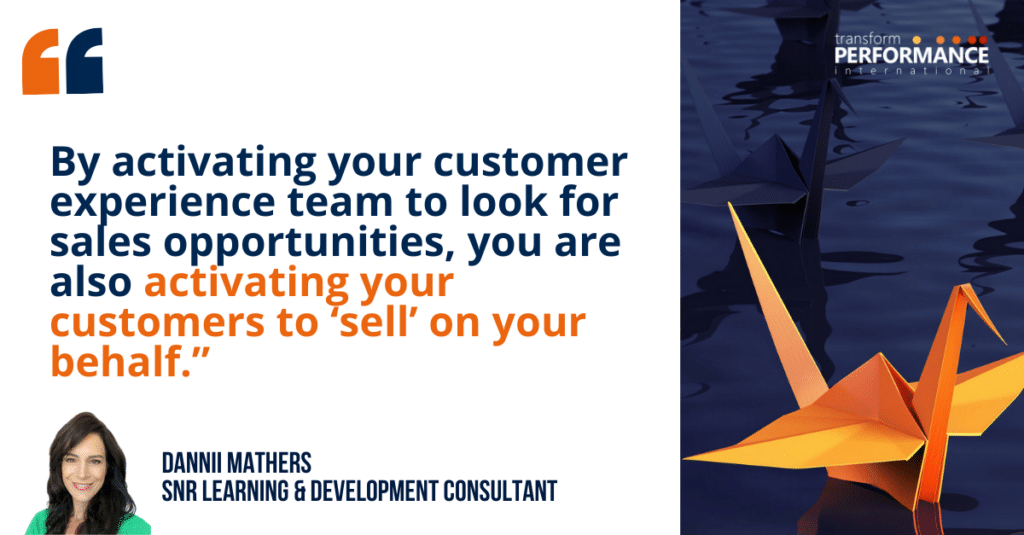One of the critical hurdles that halters business growth is organisational silos. Extensive research, including findings from McKinsey & Company1, evidences that when teams collaborate with a unified purpose, businesses achieve significantly better outcomes.
While traditional sales structures place the onus of revenue on sales teams, it’s pivotal to recognise that revenue generation is a collective endeavour.
How your customer experience team can be opportunity hunters

The contemporary buyer journey is heavily influenced by social proof. According to Cisco’s Customer Experience Trends Report, a staggering 74% of customers conduct online research before engaging with a provider. Your customer success team* must be an integral part of the sales ecosystem. If your customer service is not trained to spot sales opportunities, you’re missing out on substantial revenue.
A satisfied customer tends to do two things: repeat business and word-of-mouth advocacy. Both avenues present valuable revenue opportunities, provided these prospects are identified and acted upon – not just by sales teams but by all customer-facing teams.
Upskilling customer success teams: a strategic approach
The suggestion that customer success teams also play a role in sales might be contentious. Sales teams typically see this as their expertise, while customer success teams may resist the’ sales’ label. However, it is the customer success teams who are directly in touch with clients, collecting feedback and potentially identifying sales opportunities.
We’ve worked with Cisco year-on-year, for example, upskilling their incredibly knowledgeable customer success teams. We have empowered technically proficient support teams to broaden their perspectives, enabling them to contribute to sales by developing deeper relationships and offering additional value to existing clients.
The reason we always want to create this change is that we work with the mindset that every day your customer is with you, you are at risk of losing them to a competitor. If you are too complacent and don’t check in to understand their experience, you could miss ways to build the relationship, provide an even better service, or expand your offering to them.
Proactivity through structured engagements
A proactive approach, such as scheduling quarterly business reviews with clients, transforms the reactive customer relationship into a strategic partnership. Through these reviews, customer success teams can explore opportunities and discuss new avenues for business growth.
Upskilling helps build confidence to take control and have consultative discussions that drive revenue.
A mindset shift is needed to empower them to think beyond technical support to strategic engagement. This involves educating them on the company’s brand, the broader market issues, and potential solutions that go beyond their immediate technical remit.

Breaking down silos: collective responsibility for boosting revenue
The transformation here is two-fold. On one end, it requires a corporate culture shift to unify teams across different functions around revenue generation. On the other, it involves changing individuals’ mindsets to see their role as contributing to the company’s financial health, regardless of their primary function.
Building a culture where each team – from customer success to engineering – understands their potential impact on sales, you improve the client experience. This generates invaluable social proof – recommendations and referrals that bring in new business and strengthen your brand, which is what we talked about at the start of this article.
Community-led growth: the ultimate sales multiplier
You’ve probably noticed the increase in volume of emails and follow-ups that ask for your opinion on pretty much everything you interact with or purchase.
“What do you think of our service?”
“Rate our app”
“How was your delivery?”
With so much choice and so many purchases happening without involving human interaction, what people think of you – and say about you – really matters.
By activating your customer experience team to look for sales opportunities, you are also activating your customers to ‘sell’ on your behalf. Their reviews and networking conversations will become referrals and recommendations.
To achieve true community-led growth, your business needs to engage and leverage the whole community both within and outside of the organisation. Data can then be captured and categorised in order to identify insights that inform stakeholders across the organisation, from marketing and customer success teams to product, engineering, and support teams.
When it flows, your business is using its community as an engine – for sales but also innovation, development, and to help you evolve to meet future needs.
Part of the challenge here is to break down barriers and silos that exist if you are, for example, product or market-led. You may need to change the way you target or incentivise your workforce but the outcome is likely to be a much stronger growth trajectory, with everyone pulling in one direction, for the greater good of the whole organisation.

To summarise…
So, are all your supersellers engaged in your business? Remember the key points we’ve made:
- Often, businesses falter when teams operate in silos; unified efforts drive superior outcomes. This requires a culture shift.
- Revenue generation should be an organisation-wide effort, not isolated to sales
- Upskilling customer success teams to identify and act on opportunities can boost revenue.
- A community-led growth model leverages both internal and external networks to drive innovation and success.
Now, are you ready to transform your business? Drop me an email at [email protected] and we’ll help you fully leverage the selling potential of your teams!
*Throughout this article, we use the term customer experience. In fact, different organisations will call this function by different names including customer satisfaction and customer success but, essentially, we are referring to anyone within your business who has a responsibility for enabling the service to be delivered to the client; anyone who impacts the way that client feels about the work you do for them.
1. McKinsey’s report on the impact of collaboration in driving organisational success.



